Abstract
OBJECTIVE: The objective of this retrospective cohort study was to determine whether coronary artery bypass graft (CABG) surgery is effective and cost-effective relative to medical management of coronary artery disease (CAD) in the elderly. SUMMARY BACKGROUND DATA: The aging of the U.S population and the improvements in surgical techniques have resulted in increasing numbers of elderly patients who undergo this surgery. The three randomized, controlled trials (RCTs) that established the efficacy of CABG surgery completed patient enrollment from 19 to 24 years ago excluded patients older than 65 years. Although information regarding outcomes of CABG in this population is mainly available in case series, a major lacuna exists with respect to information on quality of life and cost effectiveness of surgery as compared with medical management. METHODS: The authors retrospectively formed surgical and medically managed cohorts of octogenarians with significant multivessel CAD. More than 600 medical records of patients older than 80 years who underwent angiography at our institution were reviewed to identify 48 patients who were considered reasonable surgical candidates but had not undergone surgery. This cohort was compared with 176 patients who underwent surgery. RESULTS: The cost per quality-adjusted life year saved was $10,424. At 3 years, survival in the surgical group was 80% as compared with 64% in the entire medical cohort and 50% in a smaller subset of the medical cohort. Quality of life in patients who underwent surgery was measurably better than that of the medical cohort with utility index scores, as measured by the EuroQoL, (a seven-item quality of life questionnaire) of 0.84, 0.61, and 0.74, respectively. CONCLUSIONS: Performing CABG surgery in octogenarians is highly cost-effective. The quality of life of the elderly who elect to undergo CABG surgery is greater than that of their cohorts and equal to that of an average 55-year-old person in the general population.
Full text
PDF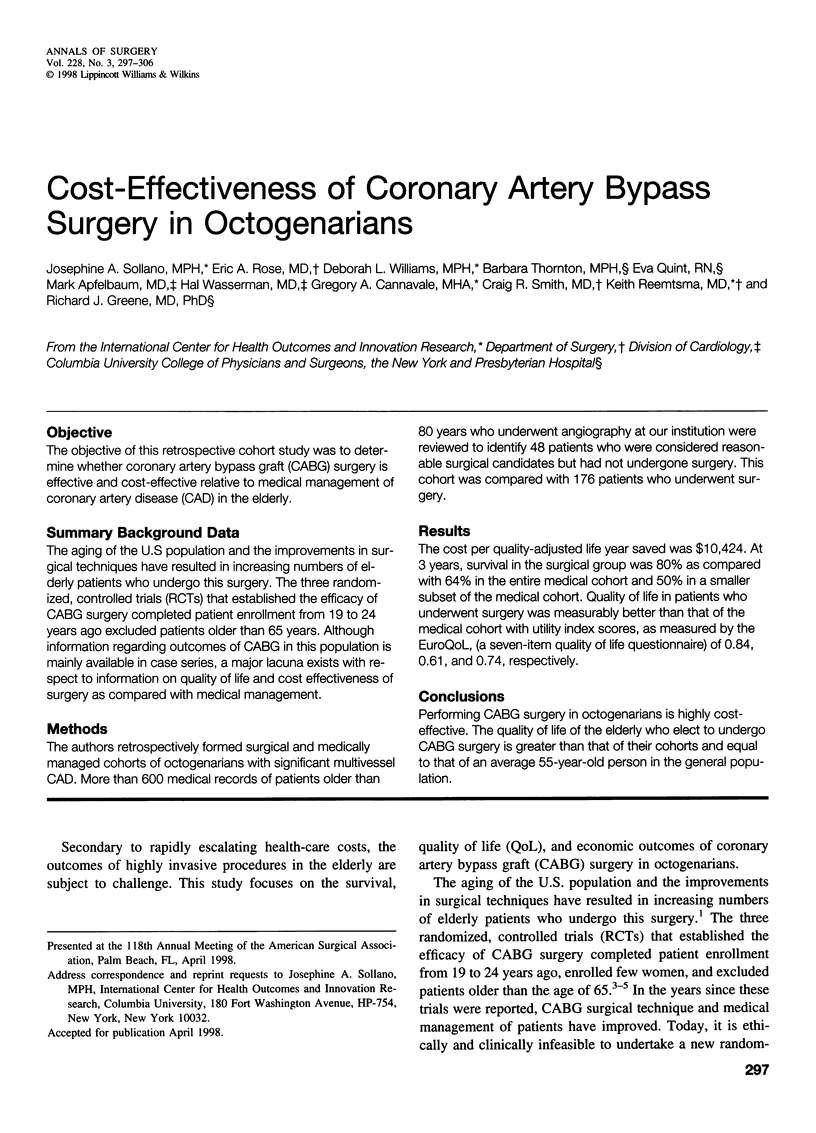
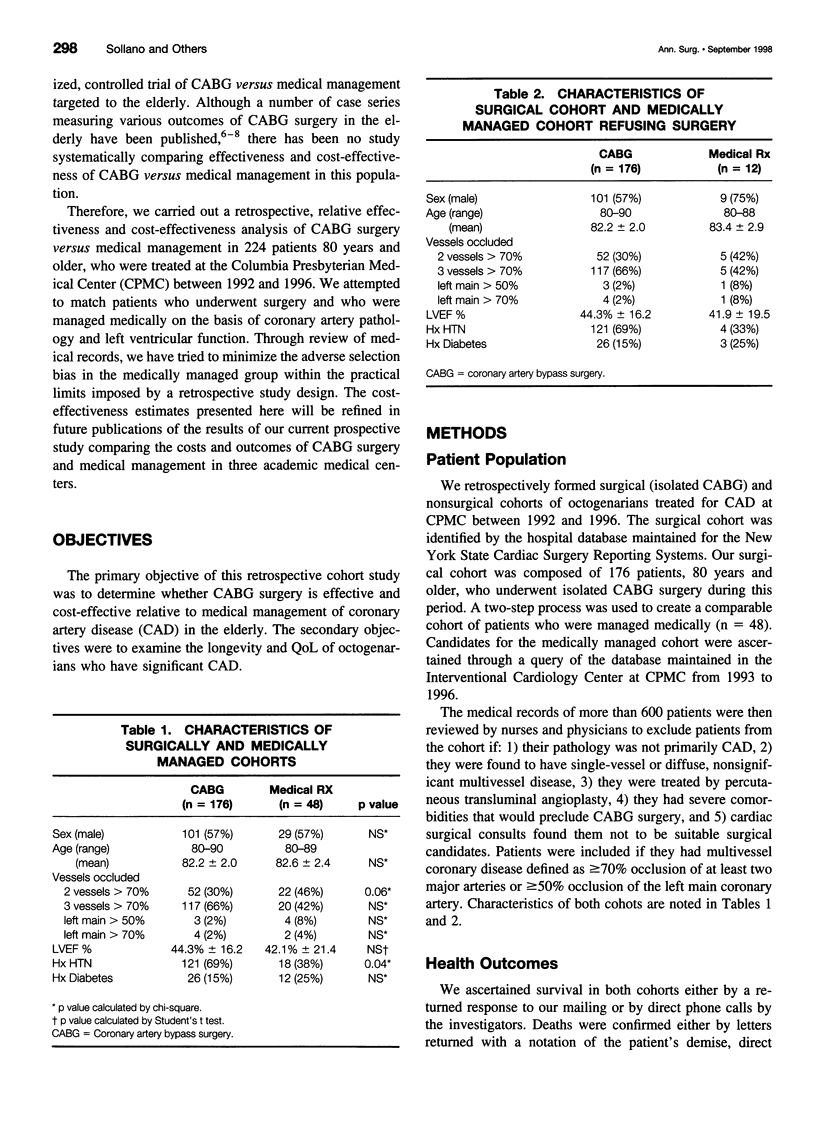
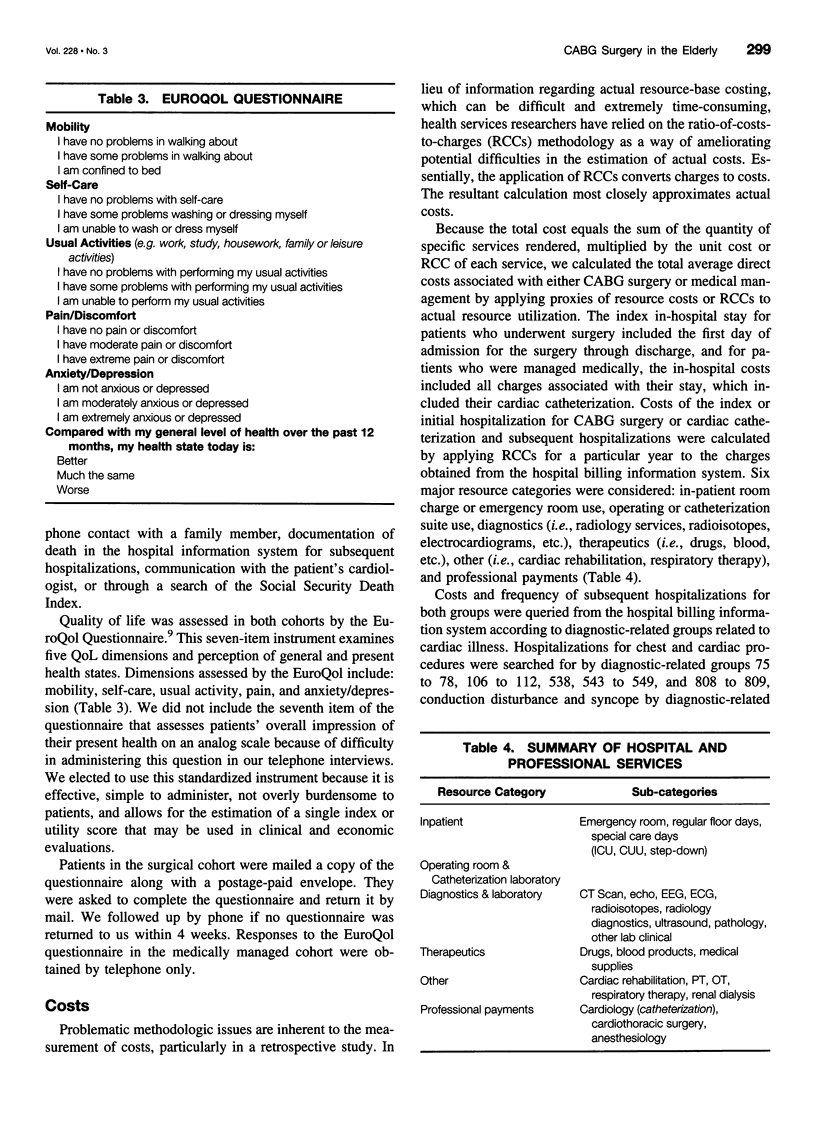
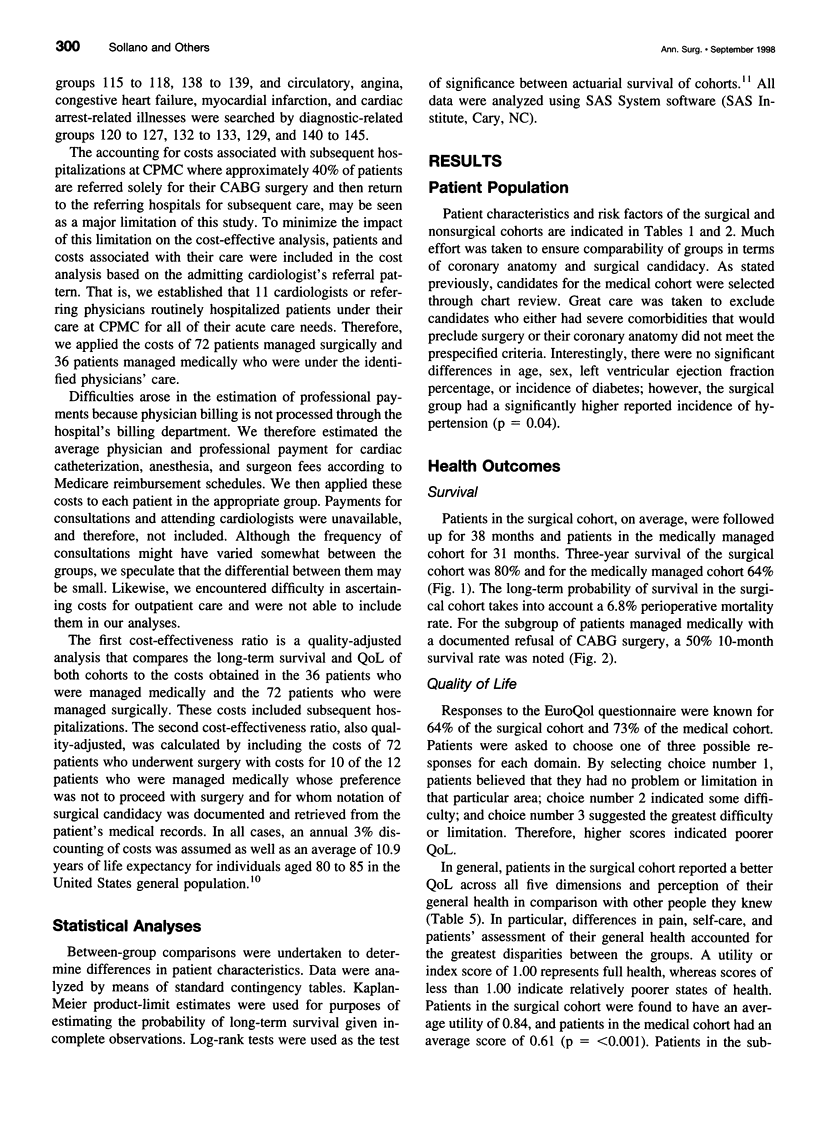
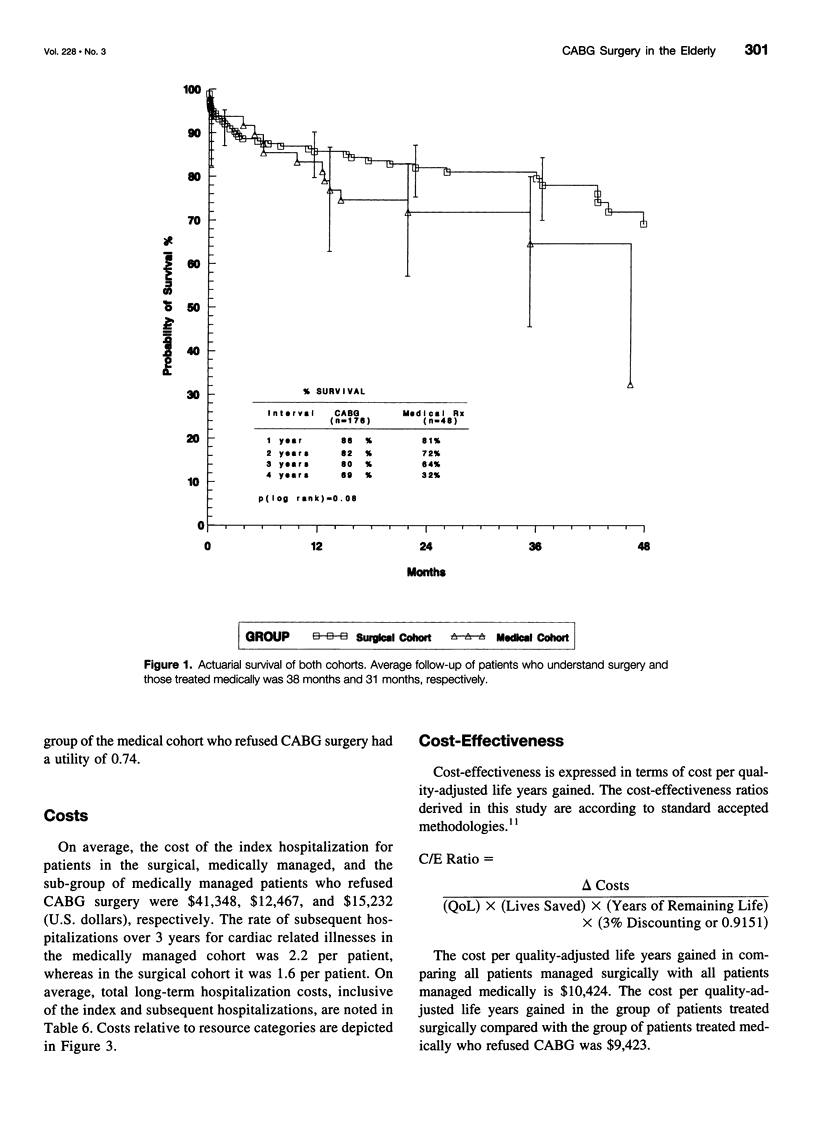
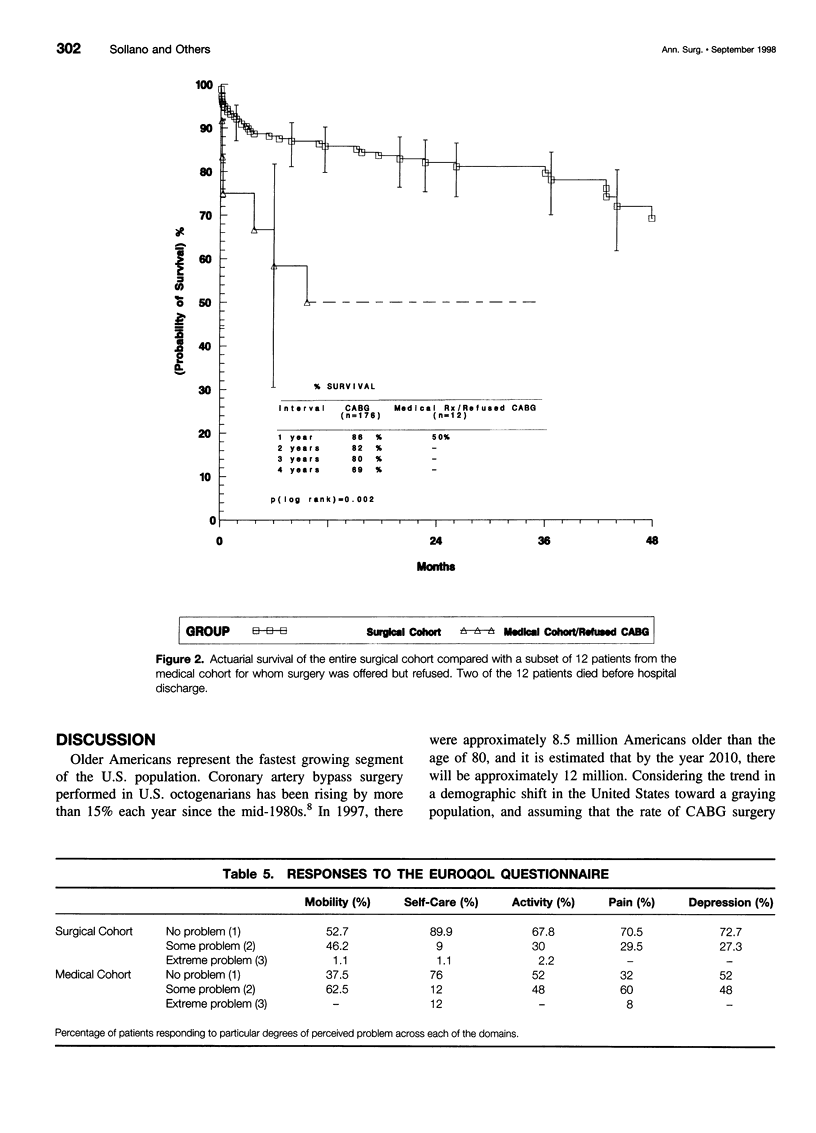
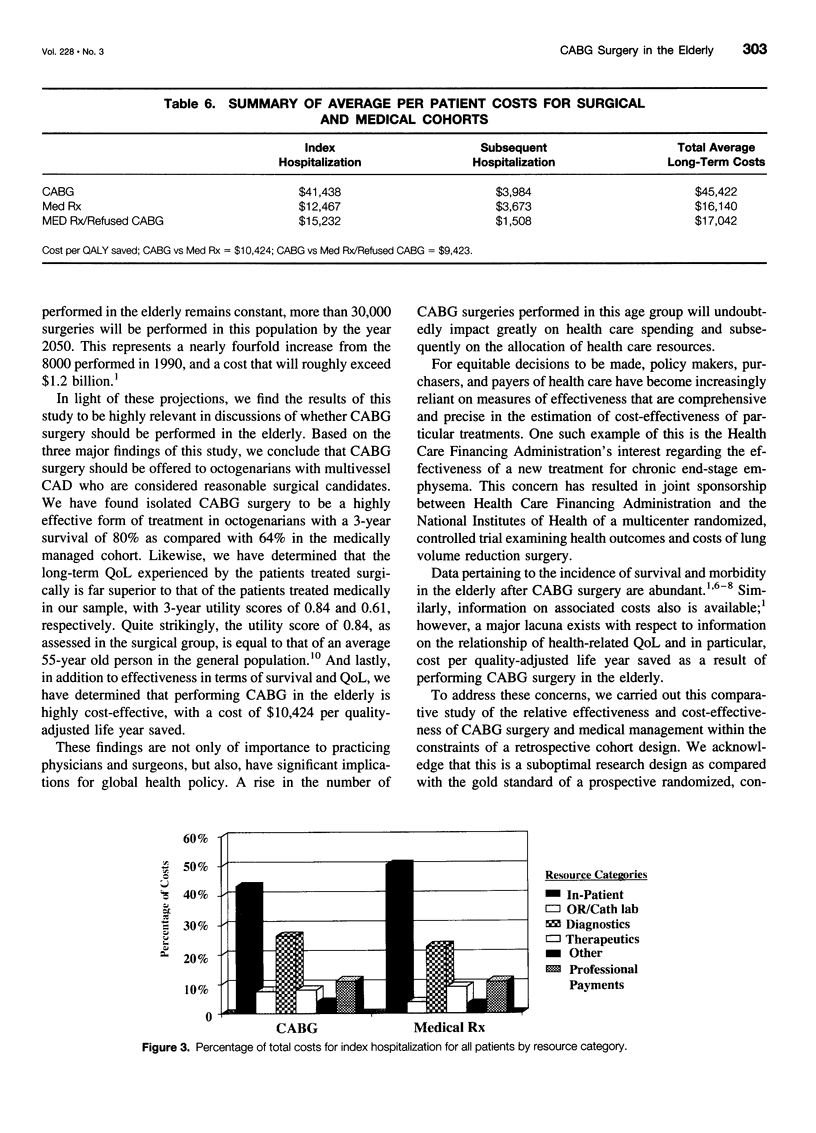
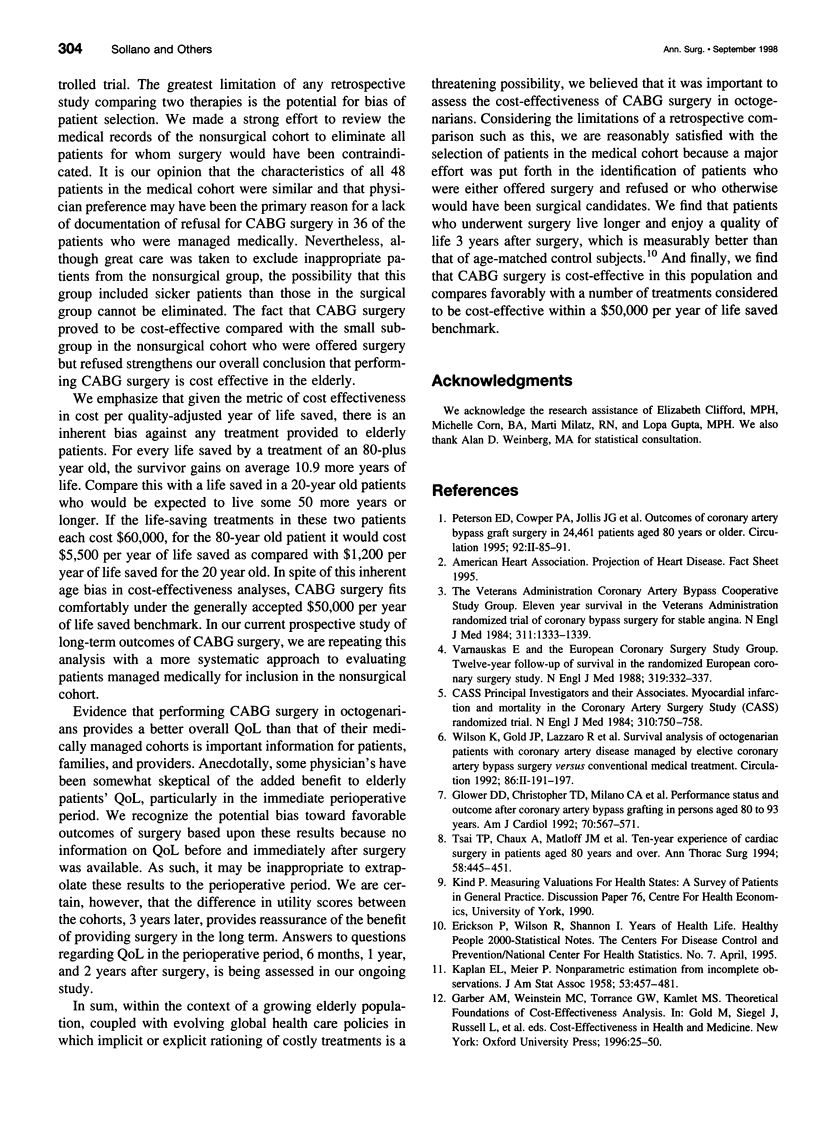
Images in this article
Selected References
These references are in PubMed. This may not be the complete list of references from this article.
- Glower D. D., Christopher T. D., Milano C. A., White W. D., Smith L. R., Jones R. H., Sabiston D. C., Jr Performance status and outcome after coronary artery bypass grafting in persons aged 80 to 93 years. Am J Cardiol. 1992 Sep 1;70(6):567–571. doi: 10.1016/0002-9149(92)90192-2. [DOI] [PubMed] [Google Scholar]
- Tsai T. P., Chaux A., Matloff J. M., Kass R. M., Gray R. J., DeRobertis M. A., Khan S. S. Ten-year experience of cardiac surgery in patients aged 80 years and over. Ann Thorac Surg. 1994 Aug;58(2):445–451. doi: 10.1016/0003-4975(94)92225-x. [DOI] [PubMed] [Google Scholar]
- Varnauskas E. Twelve-year follow-up of survival in the randomized European Coronary Surgery Study. N Engl J Med. 1988 Aug 11;319(6):332–337. doi: 10.1056/NEJM198808113190603. [DOI] [PubMed] [Google Scholar]



